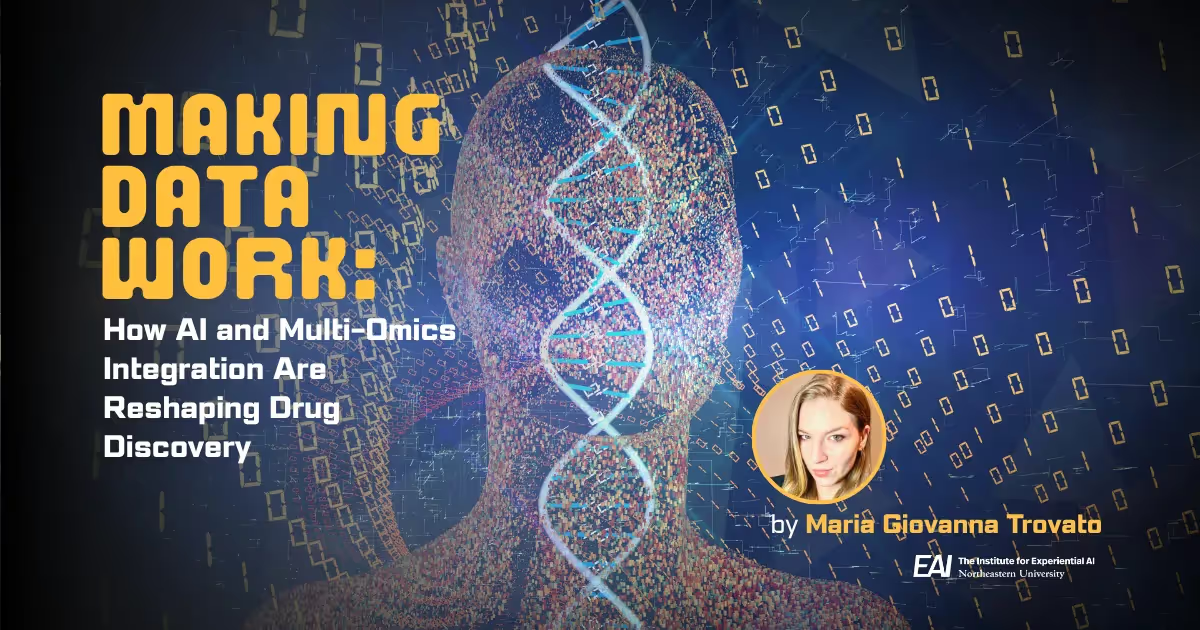Fireside Chat: How Is Boston Children’s Hospital Using AI to Improve Patient Outcomes?

What do rideshare services like Lyft and Uber have to do with disease control in the United States? Can Amazon’s Alexa serve as a model for health messaging and symptom reporting? What role can AI play in making hospitals more efficient and patient-centric?
These are just some of the topics covered in a fireside chat between Gene Tunik, director of AI + Health at the Institute for Experiential AI, and John Brownstein, senior vice president and chief innovation officer at Boston Children’s Hospital.
As part of our AI + Health Fireside Chat Series, Brownstein and Tunik discuss the importance of leveraging existing technology to meet patients where they are. For example, at Boston Children’s Hospital, Brownstein has overseen efforts to build HIPAA-compliant Alexa apps and deliver vaccines via Uber rides. They also discuss the monumental, never-ending challenge of data—what to do with it, how to clean it, how to analyze it, and how to secure it. Critical to all discussions of innovation in healthcare, however, is how to engage patients and earn their trust.
“We’re putting the public back in public health,” says Brownstein, who is also a professor of pediatrics at Harvard Medical School. “[By] engaging people in the system, they feel part of the fabric of public health, and it creates a two-way channel to educate people about the risks of infectious diseases in their community, and what steps they can take to protect themselves and their family. Ultimately, it's sort of better bringing the patient in as a stakeholder.”
AI, therefore, represents an incredible opportunity not only to dedicate more human resources to patient engagement, but also to manage growing volumes of data.
Other topics covered in the fireside chat include:
- Building AI literacy among clinicians
- Using AI to reduce administrative costs
- Maintaining trust and transparency in the face of public skepticism
- Disease forecasting with machine learning
- Managing and predicting hospital capacity with AI
- Cutting through the hype of generative AI
If there is one “holy grail” for AI in healthcare, Brownstein says, it’s in clinical decision-making, but that’s something the medical community will have to “inch” towards in the coming years, if only due to the sheer risks involved.
“That's going to require a deep level of training on the part of clinicians, because you don't want the practice of medicine to be completely reliant on these tools and relegate the clinician to just sort of the data entry,” he explains. “This is going to be a sort of a collaboration between man and machine, so that's really how we need to figure this out.”
Watch the full conversation here.
Experts in our AI + Health focus area partner with organizations to integrate AI into their operations and improve business outcomes. We also convene leaders in the space to share best practices and solutions to common challenges. A major milestone in this effort is our upcoming conference, The State of AI in Precision Health, which will take place online and at Northeastern University’s Boston campus on Oct. 10. Space is limited, so register now to join industry, research, and policy leaders as they reveal how AI is accelerating progress in health and the life sciences!




